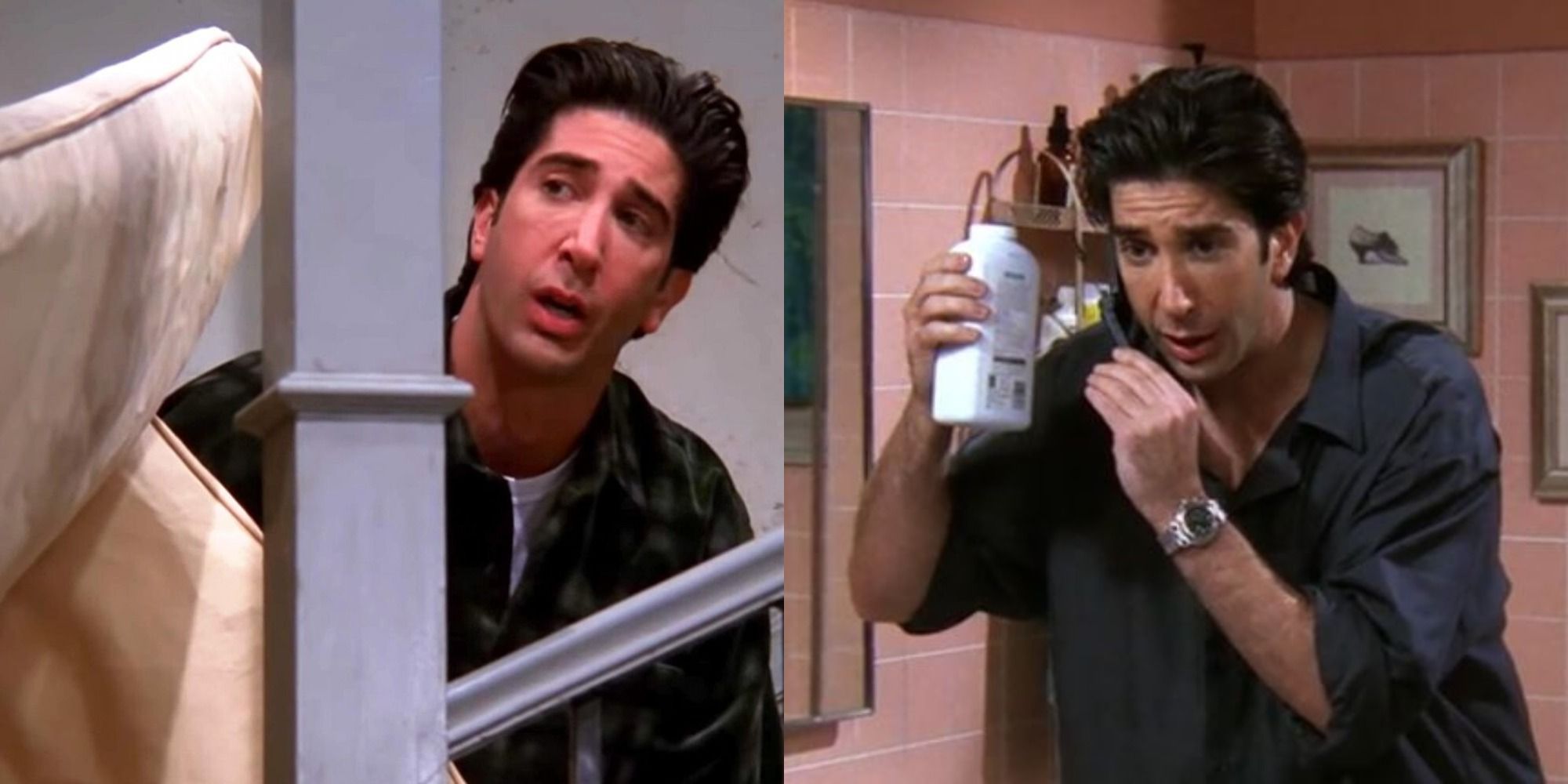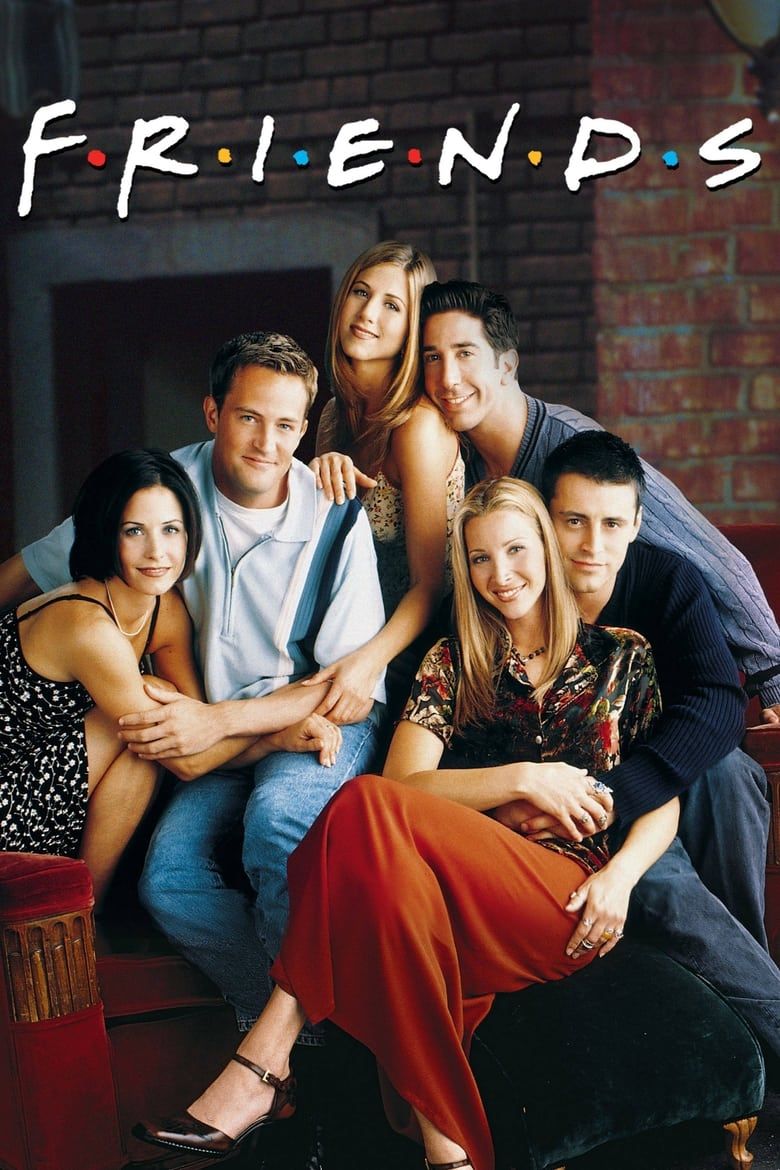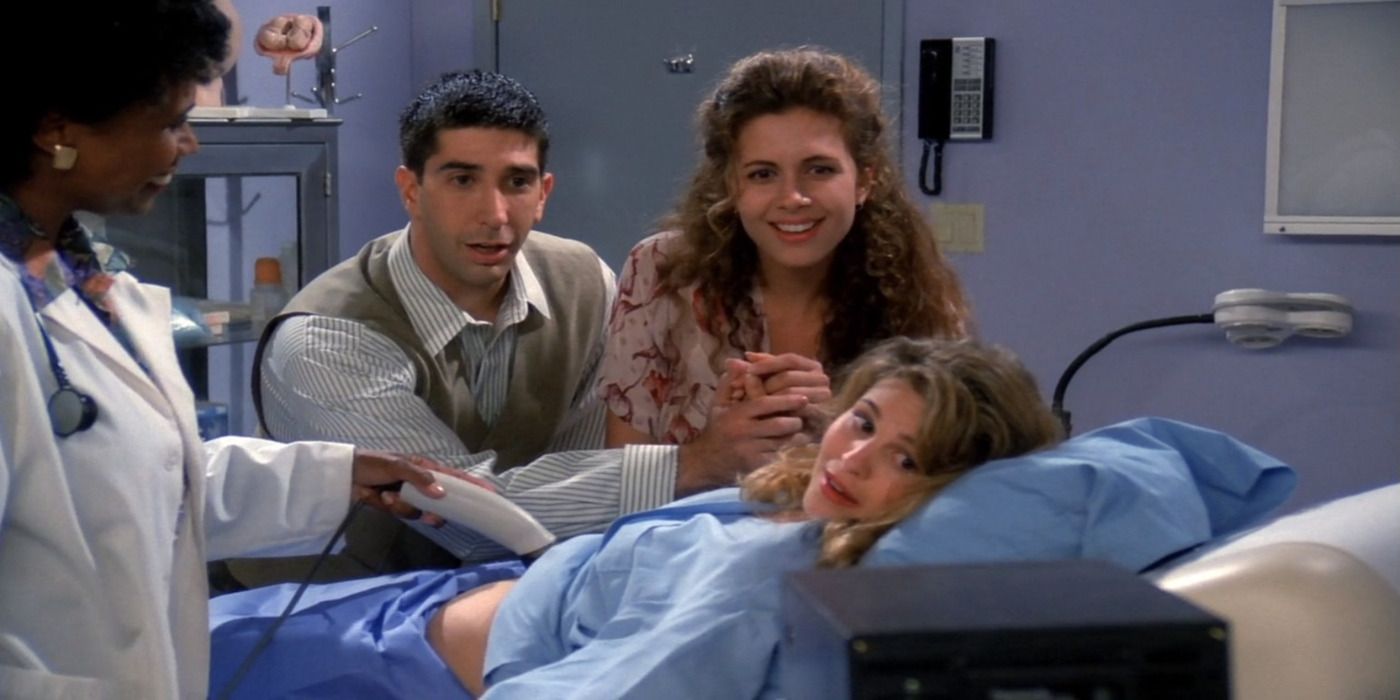It’s no secret that Friends is one of the most iconic sitcoms in television history, but whether it can be considered timeless is debatable due to some incredibly questionable moments. The NBC sitcom became a cultural touchstone in the late ’90s and early 2000s, with its instantly quotable one-liners and a core cast of six actors whose chemistry remains unmatched.
However, while Friends continues to entertain audiences, there’s no denying that some of its content hasn’t aged well. One Friends storyline, in particular, stands out not only as dated and troublesome, so much so that it can be jarring to watch today.
Even in an era where nuance wasn’t expected from sitcoms, Friends mishandled this arc in a way that felt mean-spirited, careless, and turned serious emotional distress into the butt of the joke. While Friends thrived on roasting its characters, the treatment of Ross Geller (David Schwimmer) and his mental health struggles is something the show got completely wrong.
Friends Treated Ross’s Mental Health As A Joke
The Show Mocked Ross’s Mental Health Struggles Instead Of Treating Them With Any Kind Of Seriousness
Ross Geller was always a little high-strung, but Friends didn’t just portray him as neurotic; arguably, it made his mental health a recurring punchline. In several episodes, Ross exhibited behavior that heavily suggested he was anxious and depressed. But instead of support, he was met with ridicule.
A standout example was the Friends episode “The One With Ross’ Sandwich,” where Ross has an explosive reaction after someone at work eats his Thanksgiving leftovers. While his outburst might seem exaggerated on the surface, it’s actually a major red flag about his mental state.
Ross’s over-the-top reaction led to forced time off work and a referral to therapy, but his friends’ response was to treat the situation like a joke. Monica (Courteney Cox), Joey (Matt LeBlanc), Chandler (Matthew Perry), and even Rachel (Jennifer Aniston) didn’t show an ounce of concern.
Rather than encouraging Ross to take his mental health seriously, they teased him about it. The sandwich meltdown wasn’t just an isolated outburst, either. It was the culmination of multiple stressors in Ross’s life, including his failed marriages, issues with Rachel, and the responsibilities of fatherhood.
In a hilarious character-driven comedy where all the central personalities had their quirks, Ross’s behavior was the only one pathologized, then ridiculed. His trauma and growing instability were consistently reduced to jokes. Meanwhile, the rest of the group in Friends was let off the hook for toxic behavior, like their reactions to Ross’ struggles.

Related
Friends: 10 Things About Ross That Have Aged Really Well, Actually
Fans of Friends often disparage Ross for being less likable than the other characters. But, in some respects, the character has aged very well.
Watching Friends today, the scenes and episodes where Ross’s emotional well-being was played for laughs feel shockingly callous. Even in the ’90s, there was enough awareness around therapy and mental health to have made room for more empathy. Instead, Friends turned Ross into a punchline — something that hasn’t aged well in the slightest.
Ross Was Deeply Flawed, But That Doesn’t Make How He Was Treated OK
Ross’s Has Legitimate Trauma, And Mocking It Feels Unfair In Hindsight
Ross Geller was never the most universally loved member of the Friends ensemble. He could be whiny, condescending, and possessive — especially in his relationship with Rachel. However, reducing him to just those qualities misses the bigger picture.
Yes, Ross does a lot of things that aren’t good, but his reactions to events in his life are a product of his experiences. Ross’s flaws and less-desirable quirks are clearly a product of multiple personal traumas, and while he doesn’t always process them in healthy ways, the show never gives him space to be anything but the group’s emotional punching bag.
From the very start, Ross is introduced as someone reeling from his first marriage ending because his wife, Carol (Jane Sibbett), gained the courage to live her truth and enter a same-sex relationship. While this development wasn’t anyone’s fault – and Carol leaving was absolutely justified – it’s still a major life upheaval. That’s not something most people recover from easily.
Ross later has a child, Ben, with Carol, and has to handle co-parenting his son alongside Carol’s wife, Susan. Having to handle such a situation with grace and tact would take a toll. It’s a weight that’s separate from Carol and Ross’s divorce, rooted entirely in Ross not being able to be present for much of his son’s early life. Even without the context of how and why Ross and Carol split, not being there for every day of Ben’s infancy would have a significant impact on Ross’s mental health.
Ross’s trauma is mined for laughs while the other characters’ issues are often treated with more sensitivity.
Add to that the fact that Ross later marries and divorces Emily (Helen Baxendale), and then accidentally says Rachel’s name at the altar? That’s a lot to carry. However, the show never pauses to acknowledge how damaging these repeated losses might be.
Phoebe (Lisa Kudrow) even calls him “Divorco” in one scene, which is admittedly funny – but in hindsight, it’s an example of how the show refused to take his pain seriously. Instead, Ross’s trauma is mined for laughs while the other characters’ issues are often treated with more sensitivity.
Ross’s abandonment issues and fear of being alone are clearly on display throughout the series, particularly during his toxic on-again/off-again relationship with Rachel. While he does make plenty of mistakes in that dynamic, Friends rarely explores the why, only the what.
In a long-running comedy that tackled plenty of serious life milestones — marriage, babies, career changes — it’s strange how little room was made for emotional complexity. Ross’s flaws were real, but the show treated them like they were all his fault, and that’s what makes it hard to watch today.
Even The Times Ross Tried To Get Help Were Played For Laughs
Ross’s Efforts To Seek Support And Healing Were Constantly Mocked By His Closest Friends
What’s even more frustrating about how Friends handled Ross’s mental health is that he actually tried to help himself. He knew he was struggling and made multiple efforts to improve his well-being, but each one was played for laughs. The result is that Ross becomes a character who’s not just suffering, but being actively undermined every time he tries to get better.
One of the earliest signs of Ross seeking support is in “The One with the Monkey,” when he adopted Marcel, a capuchin monkey, to cope with loneliness after his divorce. Today, emotional support animals are widely recognized and respected. However, in Friends, the idea was treated as absurd.
The group mocked Ross endlessly for needing a companion, ignoring the very real grief and isolation that led him to get Marcel in the first place. What should have been a sweet, humanizing moment for Ross was turned into yet another way to belittle him.
The show doesn’t just laugh at Ross’s pain, it laughs in the face of the healing process.
Later, in “The One With Ross’ Sandwich,” it’s revealed that Ross was on medication prescribed by a psychiatrist. Rather than applaud him for seeking professional help — a progressive move for a ’90s sitcom — the revelation was used to make him look worse.
Ross’s friends showed little understanding or support, instead focusing on how erratic his behavior had become. There was a broader issue here: the show didn’t just laugh at Ross’s pain, it laughed in the face of the healing process. In a comedy where everyone else was allowed to be quirky or dysfunctional without consequence, Ross was punished for trying to grow.
The treatment of Ross can’t simply be explained away as a product of the different audience expectations in the 1990s and 2000s. The show could have done something meaningful with Ross’s emotional journey, but instead, it doubled down on mocking him for even daring to get better. For a series that prides itself on the importance and value of friendship, how Ross is treated in Friends stands out as a serious and unforgivable misfire.

Friends
- Release Date
-
1994 – 2004
- Showrunner
-
Marta Kauffman




